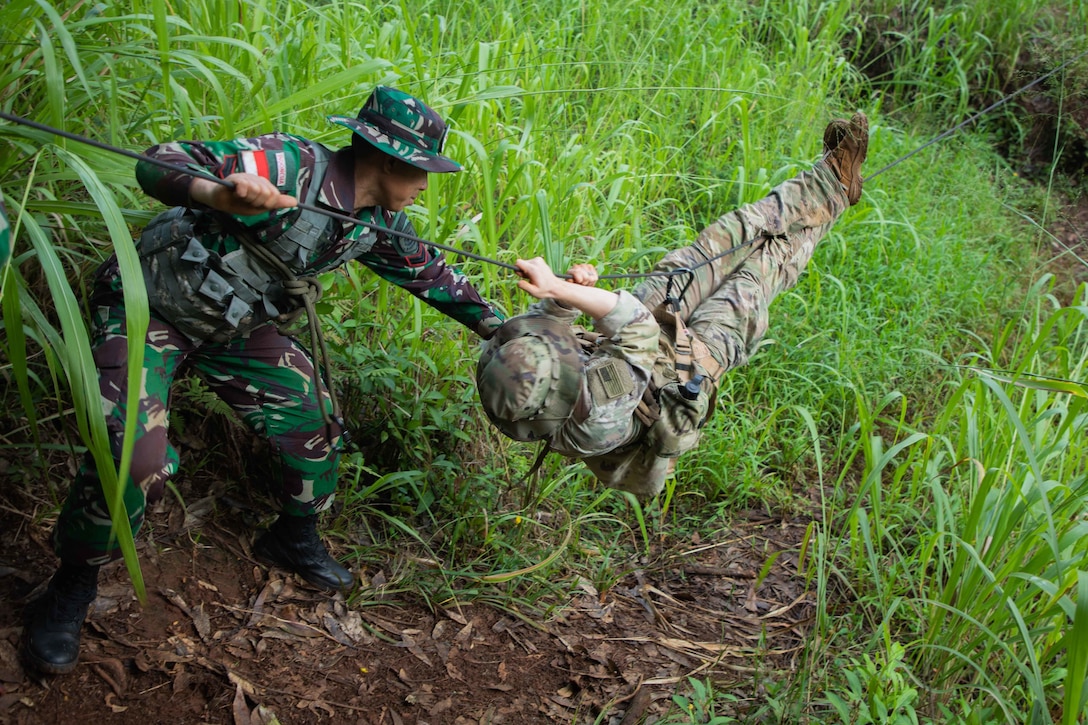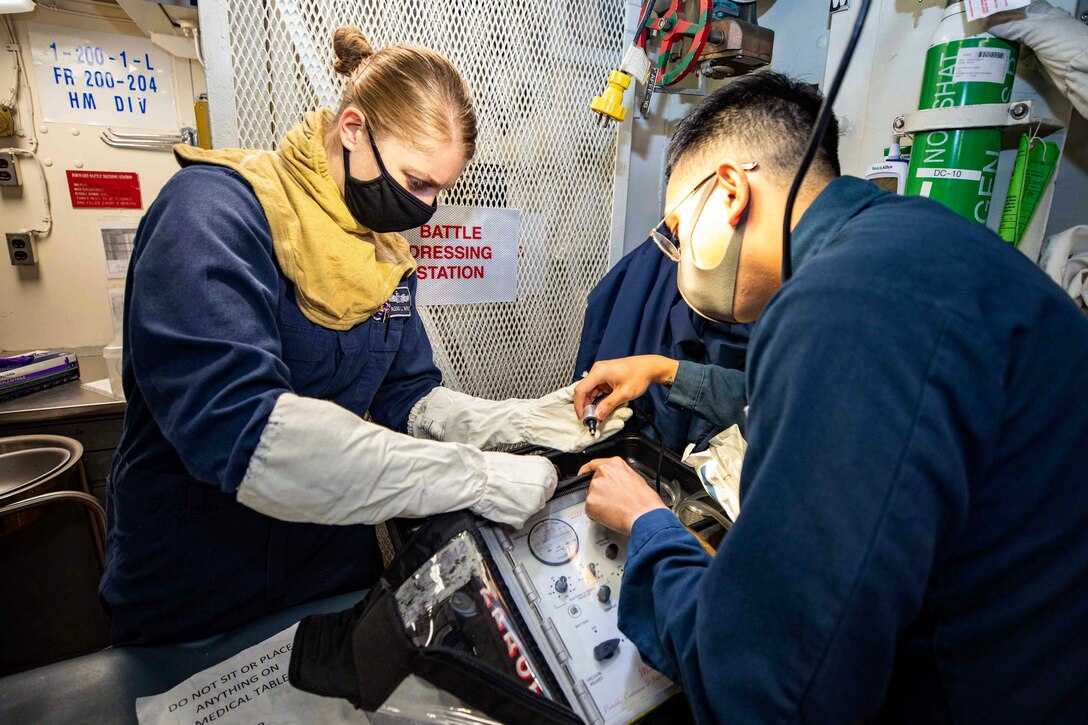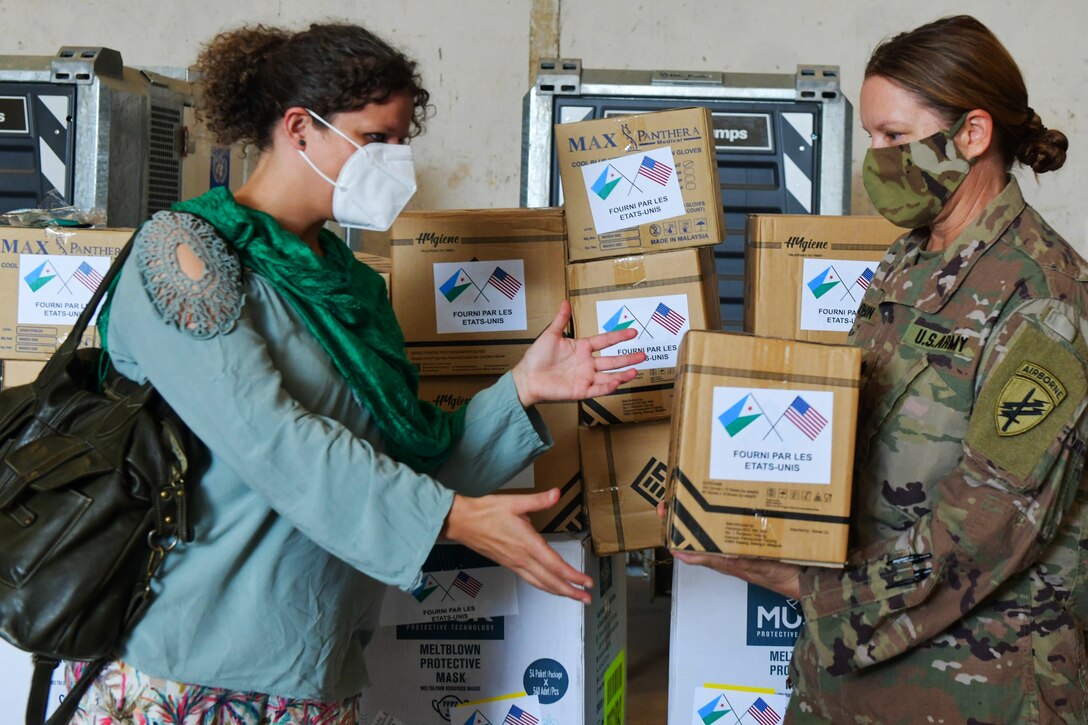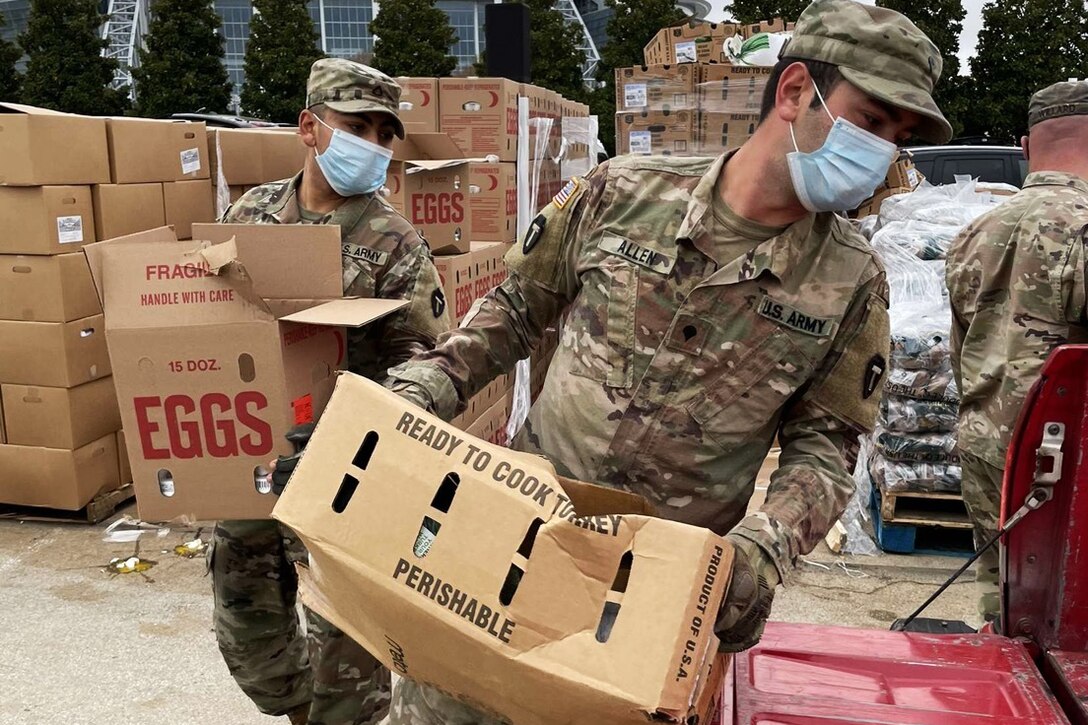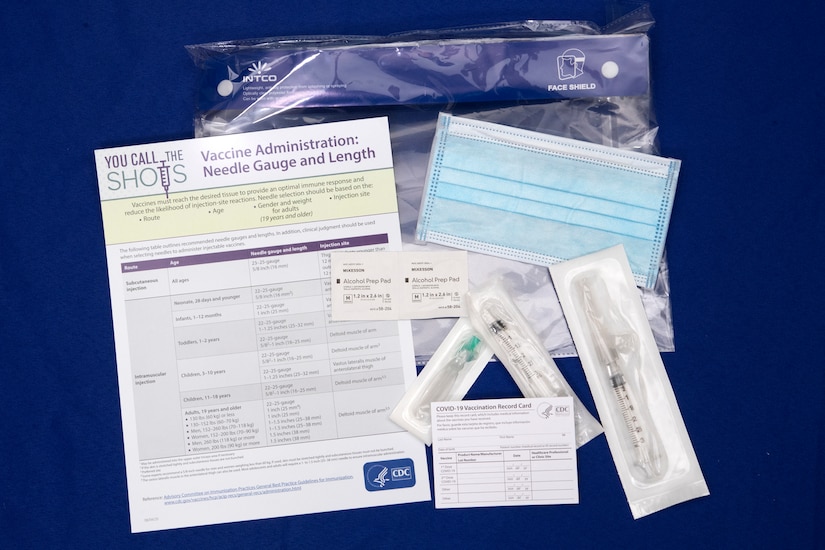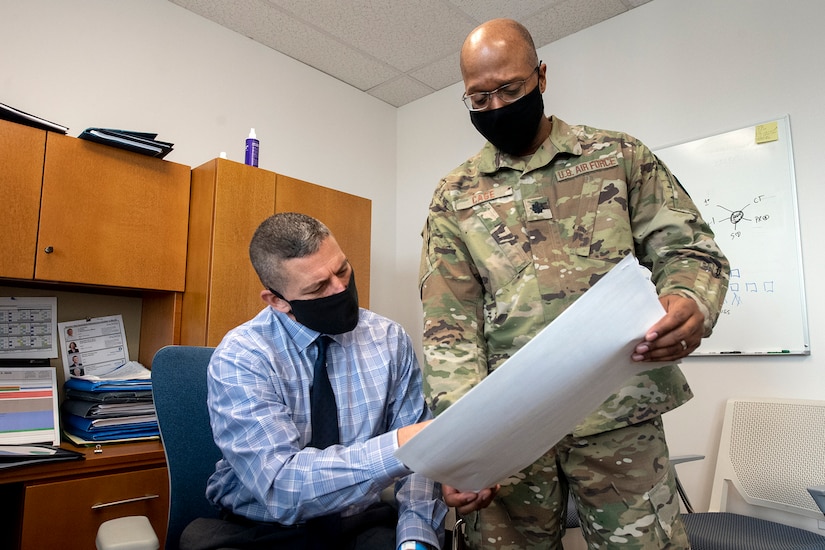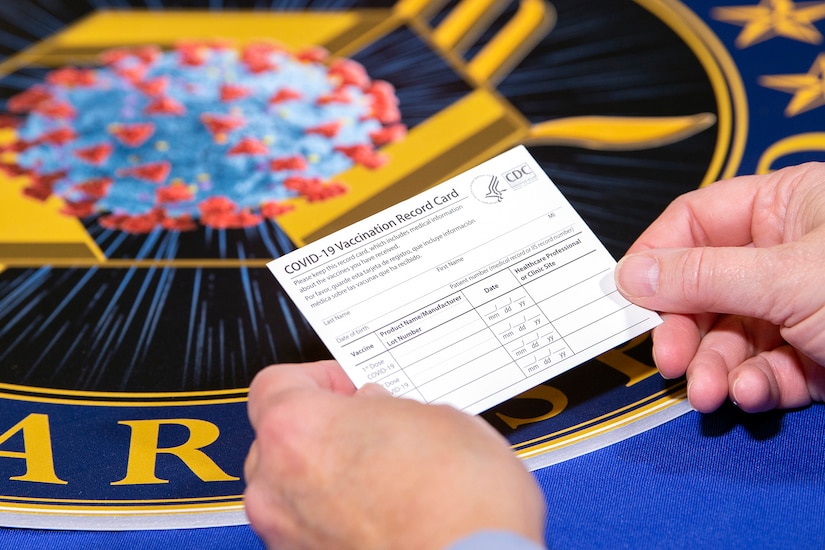Nov. 23, 2020
|
BY LISA SIMUNACI, OFFICE OF THE SECRETARY OF DEFENSE PUBLIC AFFAIRS
While the reality of a COVID-19 vaccine inches
closer, the team at Operation Warp Speed is refining its plan to deliver
doses across the country.
Charged with developing and delivering a vaccine to 300 million
Americans, Operation Warp Speed paired military planners with experts at
the Centers for Disease Control and Prevention to work the details of a
monumental plan.
"The CDC brings a lot to the table. They get vaccines out every year,
from children's immunizations to the flu vaccine," Operation Warp Speed
Director for Supply, Production and Distribution Paul Ostrowski said.
"So the CDC, Health and Human Services and our Department of Defense
Planners, who got after the manufacturing piece and are working with the
states to plan for every distribution contingency — create a powerful
force."
At the core of the distribution plan are the basic tenets of
visibility, coverage, uptake and traceability, Ostrowski explained.
Visibility of the vaccine is essential, particularly since the number of
doses up front will be limited.
"We need visibility — not only of vaccines, but of the ancillary
items we're distributing, like syringes and needles, because the
scrutiny will be unprecedented and we want to know what we have and
where it is," Ostrowski said.
Coverage is the broad dissemination, as this vaccine will be pushed
beyond traditional administration channels to ensure everyone who needs
it gets it.
"We have to go beyond brick and mortar," Ostrowski said. "We have to
get this to the long-term care facilities, to meat packing plants. We
have to go mobile to be able to cover the entire country and not depend
on people to come to us."
Uptake is managing the supply and demand.
"We want to make sure we don't have imbalances with overages in one place and shortages in another," he said.
Traceability is also a top concern, Ostrowski said, noting five of the six vaccines require two doses.
"The vaccines are not interchangeable," he said. "We need the ability
to verify the manufacturer and to notify the recipient when it is time
for their second dose."
While Operation Warp Speed will deliver vaccine shipments as directed
by the jurisdictions, it will be up to the states, territories and
major metropolitan areas to further define where the doses ultimately
go.
Operation Warp Speed is using a software platform called Tiberius,
which incorporates state and local data and provides decision-support
tools to help jurisdictions finalize their micro plans. Information
technology specialists have also been provided to assist jurisdictions
understand and maximize the Tiberius platform.
The states collectively received $200 million toward the effort, and
$140 million more is destined to arrive before the end of the year. As
local plans become more refined, Ostrowski said he is confident the
jurisdictions will get it right.
"They're doing this now," he said. "The normal places where people
get shots — from chain pharmacies to doctors' offices — are doing this
today. We can certainly do it for a COVID-19 vaccine."

